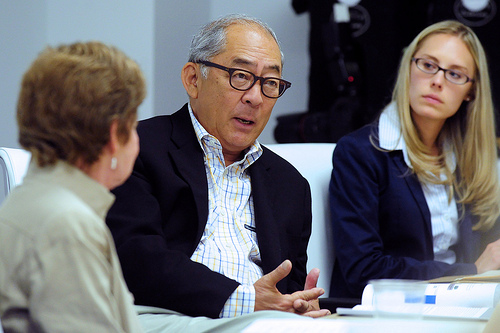 The idea of a board of advisors is nothing new here on Market Leadership Journal. Indeed, it can you maintain objectivity in your career and business decisions. But there are many more benefits of building a board.
The idea of a board of advisors is nothing new here on Market Leadership Journal. Indeed, it can you maintain objectivity in your career and business decisions. But there are many more benefits of building a board.
Companies, universities and nonprofit organizations have boards of advisors, directors, or trustees. It’s required by law. Why? The answer is simple: accountability. After all, leaders in positions of power cannot have absolute power. They must answer to someone—especially in situations where the leaders are responsible for managing assets that belong to others (such as publicly held companies and nonprofit organizations). There is a process of checks and balances that occurs in effective boards—which creates the sense of accountability that holds senior management’s feet to the fire.
This is the value in creating a personal board of advisors: a group of three to five (or more) centers of influence (COIs) who share your vision and want to see you succeed. To this end, your board should be available to give you:
1. Advice
2. Counseling
3. Encouragement
4. Pressure to follow through on your commitments
To begin, ask three to five of your best, most influential clients (or others who can speak to your professional competence and your character) to serve on your board. It is important to have individuals who can truly grasp and understand the value of what you offer.
Indeed, this is not a new concept, but it’s worth repeating. In his book Think and Grow Rich, Napoleon Hill speaks of a “master mind” group as being one of the most important factors in lasting success. In his book Love the Work You’re With, author Richard Whiteley describes six key “jobs” that together, can make up an effective board of advisors:
1. Mentor. In many ways, your board is a group of mentors; however some members may take this role more seriously than others. Your mentor should care about your success and have ownership in your future development.
2. Strategist. What makes a good strategist? It’s a person who can anticipate future challenges and opportunities, and can then alert you to them. It’s a person who can teach you to do the same—to look beyond the next step to the next five or six steps, and evaluate all the possible outcomes. Talk about being prepared!
3. Solution Provider. This individual would be more focused on the present, helping you confront more immediate challenges so that you can move forward with achieving your goals.
4. Coach. We all need a coach from time to time—it’s someone who helps us stay focused on what we want to achieve and how we are going to achieve it. Coaches are immensely valuable in situations when we begin to feel as though the world is bringing us down.
5. Butt Kicker. This is the person you do not want to tick off—because you know that if you let him down, you will either get an earful, or worse, they will sever his ties with you. He or she can also motivate you to challenge yourself in ways you never imagined.
6. Cheerleader. Your cheerleader should always reinforce a positive attitude—not only in a “Pollyanna” sense but also to always help you to see problems as opportunities and to look for the positive side of every “issue” you may face in your career.
So, where will these people come from? We indicated earlier that your board of advisors consisted of “elite” members of your centers of influence. They may or may not have a professional relationship with you. They can be suppliers, clients, or work associates. One thing to remember is that movers and shakers are typically asked by many organizations to join their boards, so being asked will be nothing new to them.
Stay tuned: in a future article we will discuss more specifically how to build your board and how to run an effective meeting.
Photo Credit: UCLAPubAffairs via Compfight cc






Be the first to comment on "Don’t Go it Alone: The Roles of Your Board of Advisors"